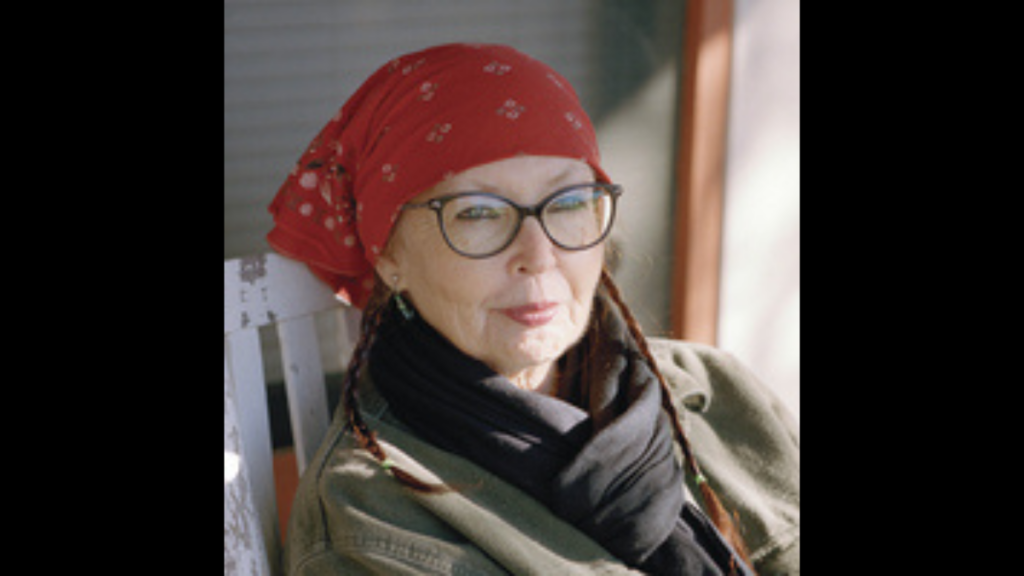This story originally aired in the Oct. 15, 2023 episode of Inside Appalachia.
H. Byron Ballard is a practicing witch in Asheville, North Carolina and the author of four books about the craft, including her latest, Small Magics: Practical Secrets from an Appalachian Village Witch.
Inside Appalachia Producer Bill Lynch spoke with Ballard about the spirits and cryptids of Appalachia.
Lynch: Byron, first, thanks for coming on inside Appalachia. It’s a pleasure to speak to you. It’s not very often I get to speak to an actual Appalachian village which, so…you may be the first.
Ballard: (Laughs) I don’t know. You know, I listen to the show, and I am pretty sure you probably talked to a witch or two already. They just might not identify that way.
Lynch: Just as a kind of get a getting to know you sort of thing, how did you become such a thing? How did you become an Appalachian village witch?
Ballard: Well, I mean, I took that on as a branding thing, just to be honest. I mean, I’m Appalachian, multiple generations back. And I’ve been a witch my whole life. My mother’s family all identified themselves and were identified with that word back to like, five generations, that I know of.
So, I’ve always been that and then, when it came time for me to, to kind of have, a hat rack to hang all my hats on, that felt like a good one. So, I called myself the village witch.
And I know some people who function as village witches in Britain. One of them contacted me, and she was like, “Well, what exactly is that you do that you think you’re a village witch?”
And I said, “Well, I go out, and I bless the cornfields. And I used to bless the tobacco crop, and I’ll come out and clear your house if it’s got some uncomfortable in it. And I’ll bless your babies, and I’ll, you know, bury your grandma, and, you know, all that stuff.”
And my friend said, “Oh, well, no. That’s exactly what a village witch does.”
And I said, “Well, yeah.”
Lynch: Witchcraft or being a witch in the 21st century: how is that different than being a witch in the 20th century or even the 19th Century?
Ballard: I would say it’s less threatening than it used to be. But in some places, it’s still just as threatening.
Um, how is the role different? It’s a really good question.
I mean, for people like me, the role isn’t any different. Obviously, I’m gonna do a baby blessing, I’m gonna do a Handfasting when people want to get married. I will do a funeral –all that stuff that people traditionally did. Plus, right now, I’ve got tinctures laid up in the dining room that I have to remember to go in and shake everyday, so that they’re gonna be good next month.
So, I do a lot of the similar things, but something that we have the ability to do now, and the privilege to do is that I can openly talk about it, and I can openly teach it to other people.
So, people don’t have to rely on reading a book. Though, I mean, I’m a writer. I want people to read all the books, but I can teach people face to face. I can tell them what works for me and what doesn’t work for me, and encourage them to do those things that they feel like they’re drawn to do, that maybe don’t have the courage or the confidence to try.
So that’s one big difference.
But the practice itself, I don’t know that it’s really changed. We joke about –there’s ceremonial magic and then there’s what I do, which is sort of, I reach in my pockets and see what’s in my pockets. I go pull a little plantain and some rabbit back and stir it all together.
And for some people, there is a sense of witchcraft being a very high-ordered religion. And you will hear some people talk about that they are a member of a witchcraft, religious tradition.
But for people like me, it’s not necessarily a religious thing, though it is connected with spirits and with spirit things, but it’s not necessarily a religion.
Lynch: Let’s talk a little about folklore. Places like the United Kingdom have pixies, and elves in Europe. We have goblins, haints and the Mothman. Don’t forget the Mothman.
Did we bring our fairies and spirits over with us when we immigrated from Europe or wherever? Or were they already here?
Ballard: I’m gonna say yes to both of those, because I think already there are spirits that are attached to land. And these are some of the oldest mountains in the world. How could they not have spirits attached to them? But I also think that a lot of my people, certainly they brought some of that with them, and they absolutely brought the folklore with them.
But now you bring up Mothman, and I’ve got a question for you. Are all cryptids man, I mean, there’s the Boojum, there’s Mothman, there’s the New Jersey Devil… are they all boys?
That was Appalachian village witch, H. Byron Ballard speaking with Bill Lynch. You can hear the rest of that interview and more on Inside Appalachia, Sunday mornings at 7 and Sunday evenings at 6 on West Virginia Public Broadcasting.






















